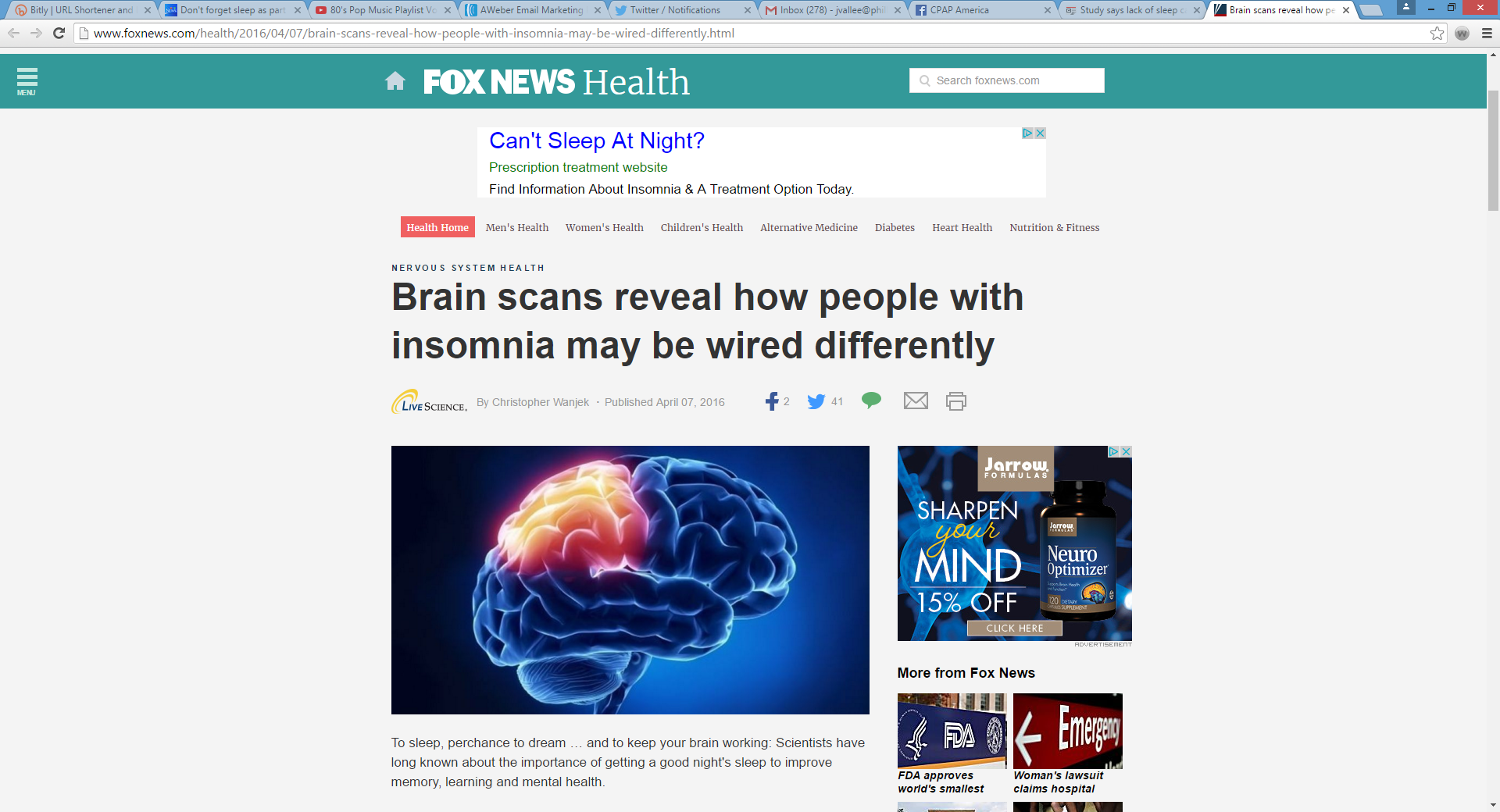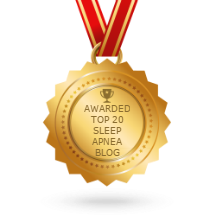
Insomnia sufferers may have abnormal brain activity
To sleep, perchance to dream … and to keep your brain working: Scientists have long known about the importance of getting a good night’s sleep to improve memory, learning and mental health. But the underlying cause of primary insomnia — a chronic inability to sleep soundly that’s not associated with the use of stimulants, or medical disorders such as depression — has eluded researchers.
Now, a small study comparing healthy participants to patients who have primary insomnia has found that the people with insomnia have weakened neural connections to and from the thalamus, the region of the brain that regulates consciousness, sleep and alertness.
The researchers could not determine whether these weaker connections were the cause of the insomnia or the result of a chronic lack of sleep. But the work may offer important clues to the origin and treatment of the sleeping disorder, according to experts in the field who were not associated with the study.
The results of the study were published online in the journal Radiology.
More than one-quarter of the U.S. population reports an occasional inability to sleep well, according to the Centers for Disease Control and Prevention. This type of insomnia can be caused by a host of factors interfering with sleep, such as drug use, stress, pain, allergies, Parkinson’s disease and depression.
But about 3 to 5 percent of adults have primary insomnia, according to a 2002 study by researchers at Stanford University. The diagnosis is based largely on ruling out known causes for the insomnia. Treatments include behavioral therapy, such as relaxation techniques. Doctors sometimes prescribe sedatives, but such drugs can become addictive or lose their effectiveness over time.
To read the rest of this sleep related article, click here:
You can buy CPAP Machines, tubing and all of your CPAP supplies at CPAP America, 707 Mantua Pike, West Deptford, NJ 08096. Feel free to contact us at 1-800-569-0167.
You can also reach us via email here.

